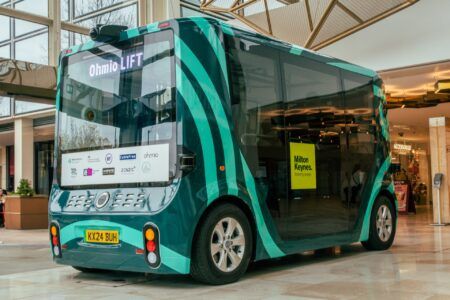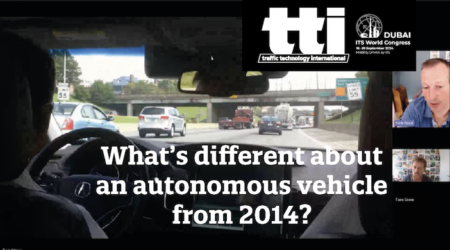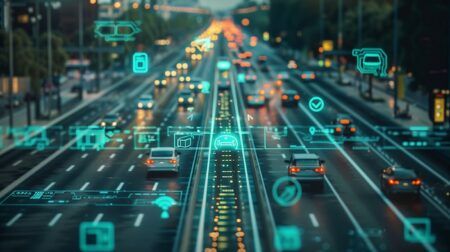A California-based software developer that provides self-learning cognitive perception systems that replicate human context, in order to enable machines to perceive, orient and respond to the physical world, has unveiled a passenger-facing augmented reality (AR) experience that integrates its localization technology with 3D dynamic maps.
Silicon Valley startup Civil Maps recently held a series of test drive experiences in vehicles equipped with its AR display and proprietary localization technology, showing passengers how self-driving cars using its technology observe and navigate complex driving environments in real time. The company’s localization and mapping platform is now commercially available for auto makers and other companies interested in low-cost, high-precision 3D map creation and updates. Vehicles equipped with Civil Maps’s platform tap into real-time sensors to aggregate detailed and up-to-date map information, building a more complete virtual world for autonomous vehicles (AVs) and a smoother ride for passengers.
AVs relying on these maps as a reference for precise navigation combine Civil Maps’s localization with pre-existing map information to inform real-time decision-making. This combination of previously-known map information, with up-to-date localization by vehicles equipped with Civil Maps technology, is the crowdsourcing power that builds and continuously updates maps for AVs. The dynamic map created by AVs not only helps fully autonomous vehicles make important driving decisions, but can also inform passengers with a visualization of the vehicle’s understanding of the environment.
Civil Maps’s in-vehicle platform pairs with AR technology that shows passengers a live video feed, along with the map data relevant to the vehicle’s precise position. Ride-along demonstrations that showcase this pairing of advanced mapping technology and AR are ongoing at Civil Maps’ headquarters in Albany, California.
Civil Maps’s localization and mapping platform comes packaged in an off-the-shelf commercial hardware reference kit that can be easily fixed to a range of mounting systems and vehicles, and is also available in a Lite package that integrates with sensors already built into many current mass-produced vehicles. The localization & AR mapping software generates 3D maps with greater efficiency of cost and labor than any other currently available mapping technique and creates maps that include highly detailed, real-time spatial data, accurate to the nearest 1.5-2 inches (3-5cm). Additionally, the platform requires a fraction of the data storage and transmission that is traditionally used for localization. This allows machines to crowdsource data from many vehicles, and connect to the cloud through 4G LTE at low cost, due to its light data footprint and an automated data collection and mapping process.
“We are excited to showcase the power of augmented reality maps for fully autonomous driving,” said Sravan Puttagunta, CEO of Civil Maps. “As the providers of the world’s most sophisticated, cost-efficient 3D maps for autonomous machines, we see AR as the key link that will help passengers become comfortable with how AVs perceive and move through the world. The use of localization data in combination with AR is an extremely promising area for our own growth, as well as for the race to bring fully autonomous vehicles to market.”




